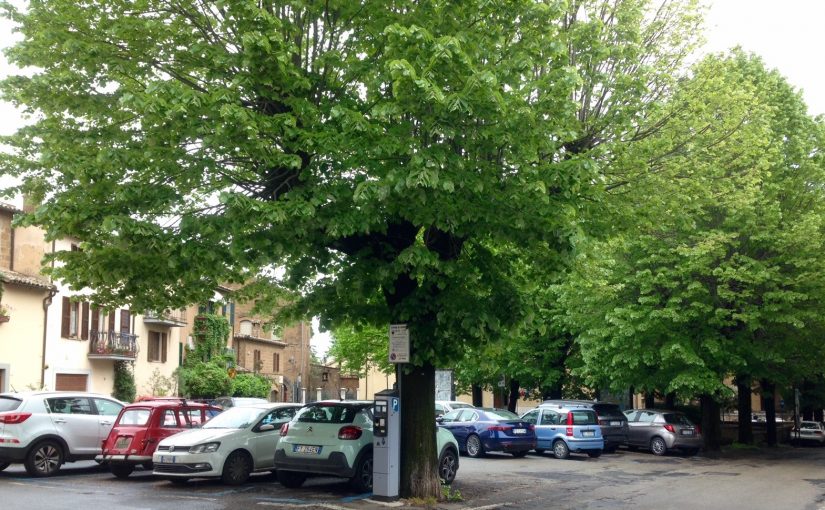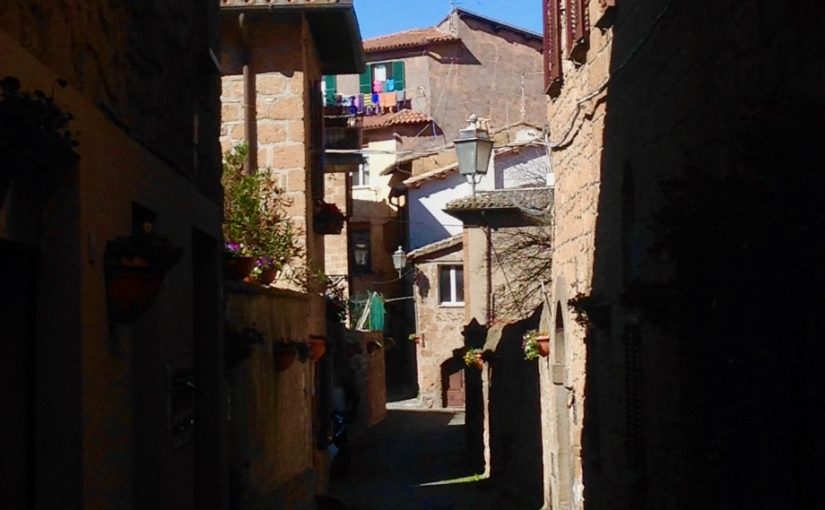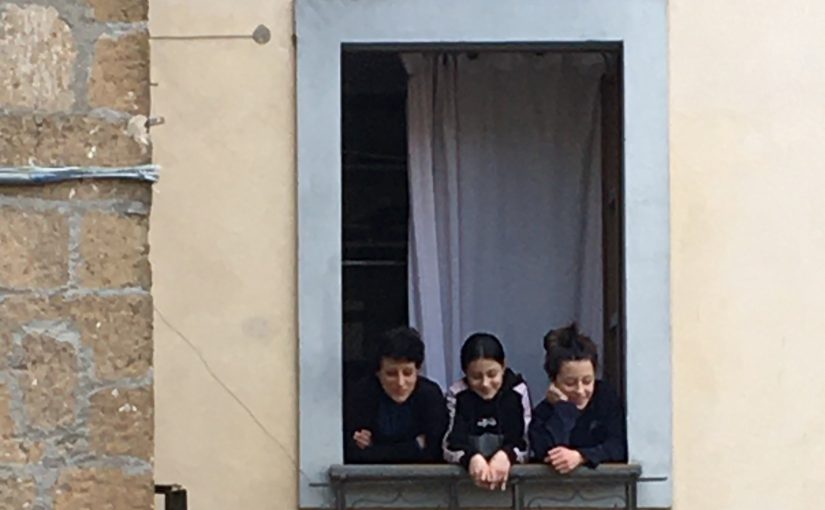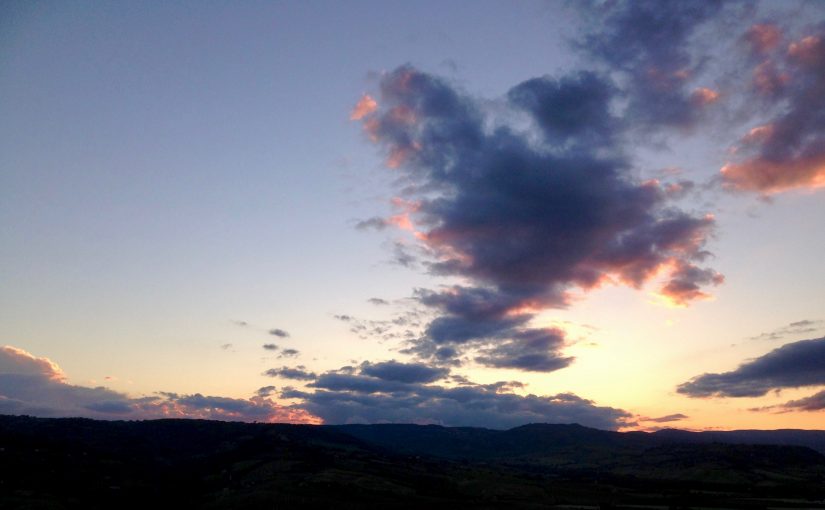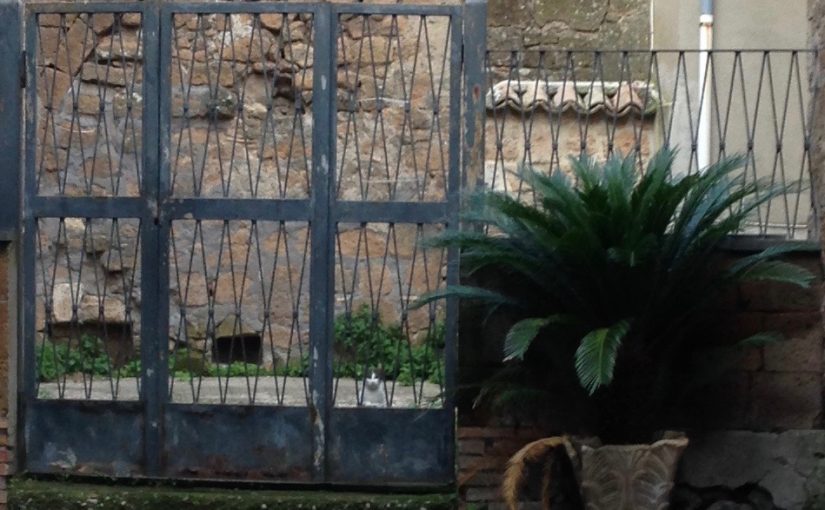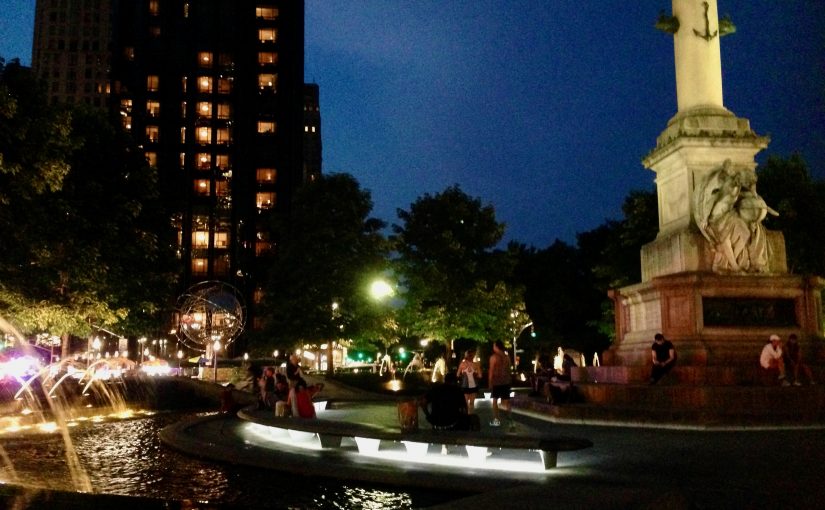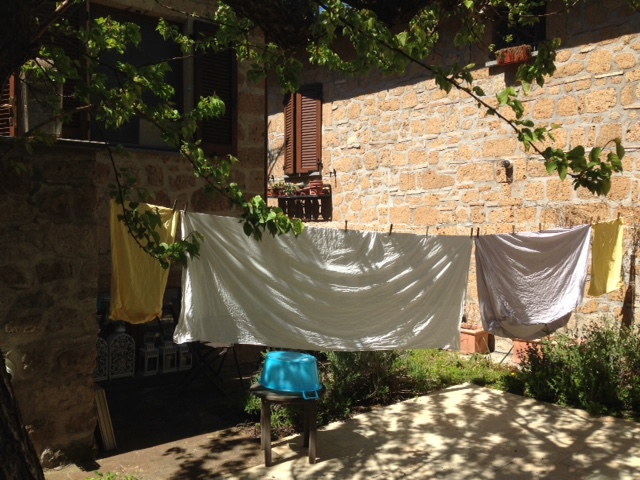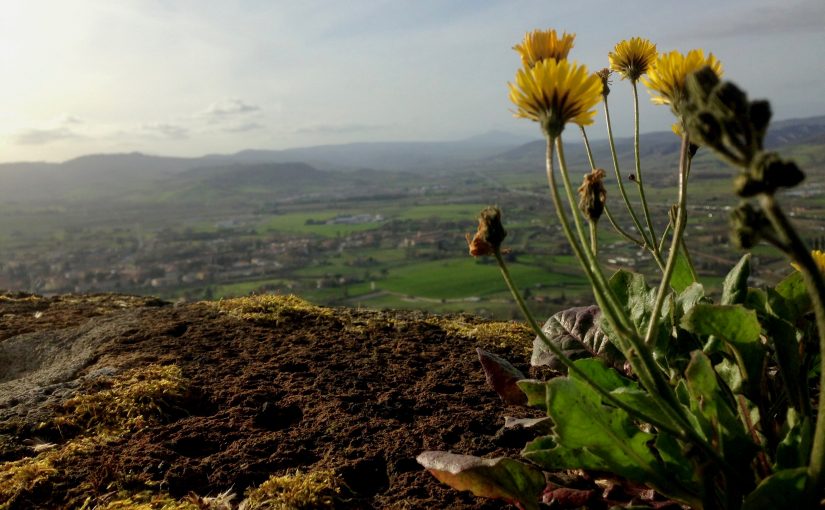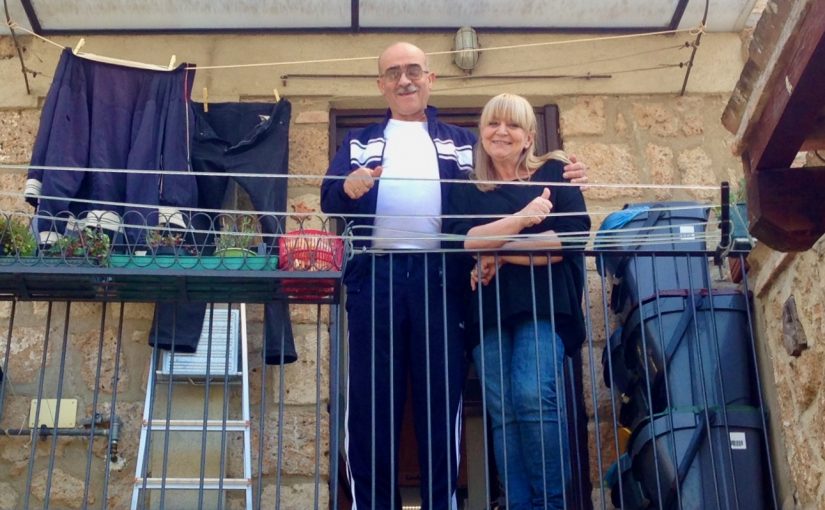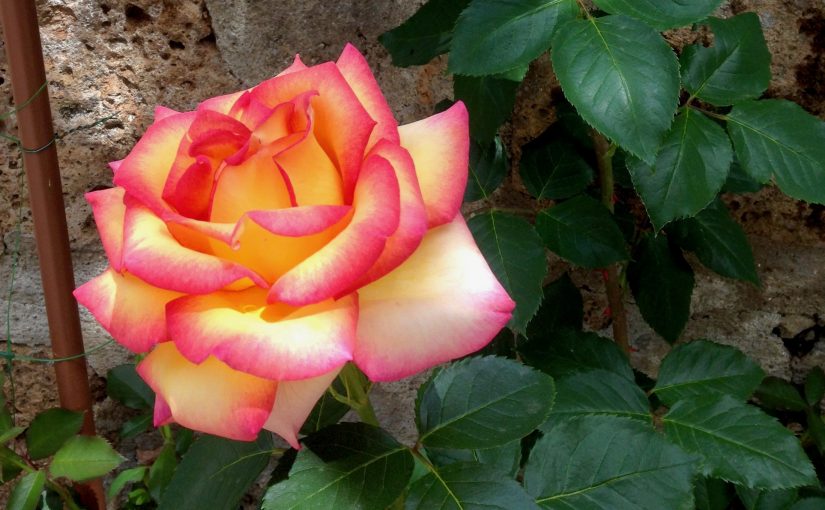Feeling particularly adventurous yesterday during my daylight stroll, I branched off of Via delle Pertiche No. 2 onto Vicolo delle Pertiche B, and went the thirty meters or so towards what I for years have called “the little piazza with the trees,” properly known as Piazza Angelo da Orvieto. There, before entering, I stopped. Everything suspended. The square is primarily a parking lot, but the central portion is a park, and in this park there are a dozen beautiful trees. To the right is a private garden with wisteria in rampant bloom.
While the green leaves and purple blossoms are enough to justify the side jaunt and the pause, there is something more about this piazza. It’s where I meet Roy to be taken to medical appointments in his golden Fiat. I meet Erika there to go down to Ciconia where our hearing aides are serviced. Claudia picks me up in that piazza when we have our joint visits with the remarkable Dottoressa Christel Fritz. Piazza Angelo da Orvieto, is for me, a point of departure, a portal to the world, the way train stations are, the way airports are. For a suspended moment gazing at the little grove of trees, I forget that the majority of meetings associated with it are medically related. The company going and coming is rich and enjoyable and memorable. Like the leaves and the blossoms.
I went to gaze at the piazza again this morning, this time in the rain. The colors were especially vivid, the suspension of time, particularly profound. I noticed how few cars there were. That may have been the case yesterday, too, I didn’t make a point of noticing. The lot is, in normal times, almost always filled with vehicles parked wherever a space can be imagined, legal or not.
Later today, I went shopping. That was somewhat of a cheat, as my last shopping day was the day before yesterday. But this morning, I surveyed my bounty and discovered that I had shopped myself into a week of frulatti (smoothies) and cheese sandwiches without mayonnaise, so some bending of my own rules was called for.
It seems odd these days to say that the rain keeps people in, but the streets were even quieter than usual. Proprietors in the open shops stood serenely at their counters like the paintings of a Flemish Master – luminous glow, gentle shadow, singular, alone. I saw few people at all, and no one I knew. It was as if our collective experience of solitude has caused us to hold our breath, so that grey skies encourage what is now our natural inclination to bunker at home. Life in suspension.
Today, I’ve been thinking about a fellow I met four years ago, a friend of Claudia’s. I’ve seen him infrequently and can never remember his name, so nod, say hello, smile, but make no effort at sociality. In the first and only conversation we had – not far from the little piazza with the trees – I remember enjoying his sly sense of humor. He expounded on the effects of radon. In the intervening years, every now and then I would ask Claudia his name, but as it was usually months before we’d cross paths again, I’d forget. And because I felt I should remember, when we did meet, I was too shy to say more than hello.
The day before lockdown, I ran into him on my way to lunch at Montanucci. He started talking, and we walked together. We began in Italian, then moved a few sentences to English, then he continued in English while I returned to Italian.
“Excuse me for this,” I finally said, “but I don’t remember your name.”
“Emilio.”
“Good, thank you. When I see you by chance, I’m always so embarrassed that I don’t know what to call you that…”
“And yours?”
“David,” and I handed him a card.
“We will now be together and speak English for me and Italian for you, and call one another by name.”
“Great idea.”
“Do you remember when we met?”
“Sure. You were on your bike. Claudia and I were going to her car that was parked in Piazza Angelo da Orvieto, and she introduced us. You talked for several minutes about how radon makes people here crazy.”
“Yes! And I am the living proof! Good! I have to meet my daughters or I’d invite myself for lunch, but soon! Yes?”
There are hundreds of suspended conversations just in Orvieto – billions world wide – journeys to be taken, adventures to depart upon, appointments to be met. For me, many began, and will begin again, in the little piazza with the trees. So, when I find myself on its edge, I have to wait a moment for the conversations to resume. So far, silence. But someday, when all is ready, we the fortunate will breathe deeply, rise out of suspension, and find our ways forward into conversations we cannot as yet imagine.
